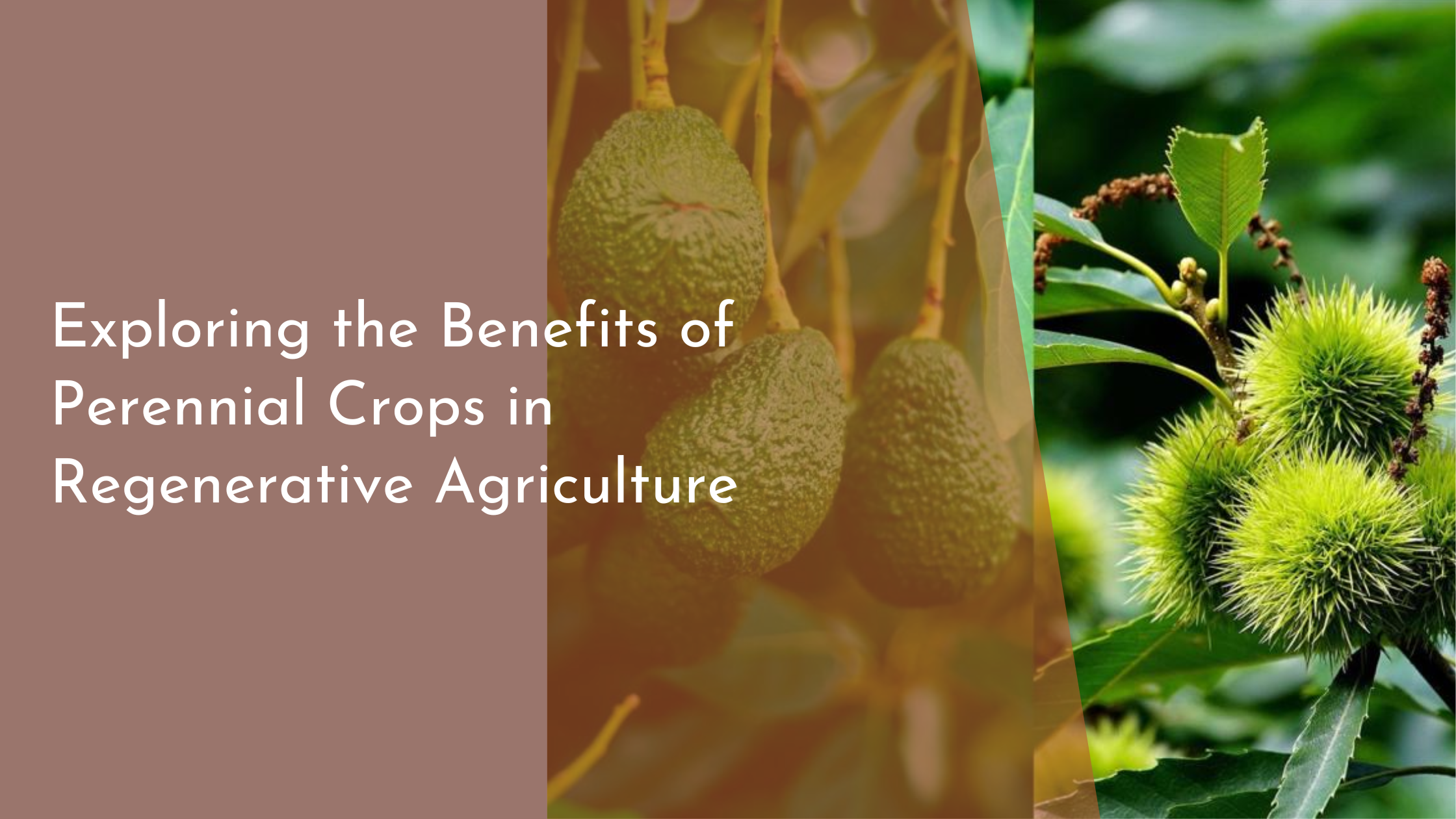Exploring the Benefits of Perennial Crops in Regenerative Agriculture
In the quest for sustainable agriculture, perennial crops are emerging as a promising solution. These resilient plants offer numerous benefits over their annual counterparts, making them an essential component of regenerative farming practices. By delving into the world of perennial crops, we can uncover the transformative impact they have on our agricultural systems, the environment, and our future.
Understanding Perennial Crops in Agriculture
Perennial crops are plants that live for more than two years, continuously yielding for several growing seasons without needing to be replanted annually. Unlike annual crops, which complete their life cycle within a single year, perennials have deep root systems that allow them to access nutrients and water more efficiently. Popular perennial crops include fruit trees, nut trees, asparagus, and artichokes. These crops not only provide diverse and abundant yields but also contribute significantly to ecosystem stability by reducing soil disturbance and enhancing biodiversity.
The significance of perennial crops in agriculture cannot be overstated. With climate change and environmental degradation posing severe threats to traditional farming systems, perennials offer a sustainable alternative. They help mitigate the impacts of extreme weather events, as their deep roots enhance soil structure and water retention. As regenerative agriculture continues to gain traction, understanding and implementing perennial crops becomes essential for farmers seeking to maintain productivity while reducing environmental harm.
Key Advantages of Perennial Crops
One of the most notable benefits of perennial crops is their ability to reduce soil erosion. The extensive root systems of perennials help bind the soil, preventing it from being washed away by rain or blown away by wind. This not only preserves the fertility of the land but also protects water bodies from sedimentation, which can be detrimental to aquatic ecosystems. Furthermore, perennial crops require fewer mechanical inputs, such as plowing and tilling, which further reduces soil disturbance and promotes long-term soil health.
Perennial crops also play a crucial role in enhancing carbon sequestration. By storing carbon in their biomass and the soil, they help offset greenhouse gas emissions. This makes them invaluable in the fight against climate change. Additionally, perennial systems often require fewer chemical inputs, such as fertilizers and pesticides, as their robust root networks naturally suppress weeds and enhance nutrient uptake. This translates to lower production costs and a reduced environmental footprint, making perennial cropping systems both economically and ecologically beneficial.
Perennial Crops and Soil Health
The relationship between perennial crops and soil health is profound. These crops contribute to the development of a rich, organic soil layer, enhancing soil fertility over time. Their roots interact with soil microorganisms, creating a symbiotic environment that boosts nutrient availability and soil vitality. This results in healthier crops, increased resilience to pests and diseases, and improved yield quality over time, all without the extensive use of synthetic inputs.
Moreover, perennial crops contribute to improved water management. Their deep roots enhance the soil’s water-holding capacity, reducing the need for irrigation and helping to buffer against drought conditions. This not only conserves water resources but also reduces the risk of crop failure during dry spells. By maintaining a living cover on the soil year-round, perennials also reduce water runoff, further supporting sustainable water management practices in farming ecosystems.
Conclusion: Embracing Perennials for a Greener Future
As we look towards more sustainable farming practices, the integration of perennial crops presents a viable path forward. Their myriad benefits, from reducing erosion and enhancing biodiversity to improving soil health and sequestering carbon, align perfectly with the goals of regenerative agriculture. By embracing perennial systems, we can cultivate more sustainable and resilient agricultural landscapes that stand the test of time.
The journey towards sustainable agriculture is an ongoing endeavor, and perennial crops are key players in this transformative process. By incorporating these resilient and resource-efficient plants into our farming systems, we can foster a more sustainable, productive, and healthy planet. Embracing perennials is not just a step towards greener fields, but a leap towards a brighter, more sustainable future for generations to come.


